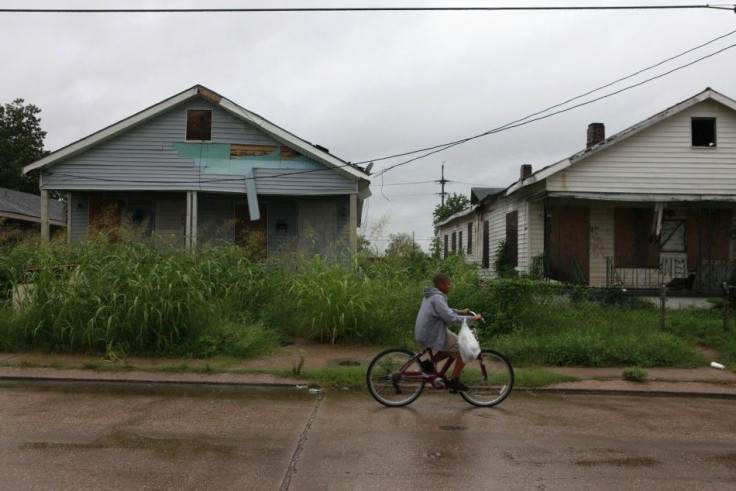New Orleans has lost 30 pct of its population since 2000 Census

Hurricane Katrina reduced the population of the New Orleans by almost one-third, according to data from the U.S. Census Bureau.
The Crescent City’s population plunged from about 485,000 during the last Census, down to about 344,000 last year – a 29 percent plunge -- much of that loss can be attributed to the devastating hurricane which savagely struck the Gulf Coast in the summer of 2005.
Some parts of the city, like St. Bernard Parish, which was heavily inundated by floodwaters, lost almost half of its population.
Many residents fled to neighboring states, especially Texas, and apparently never returned. Others moved to suburban areas just outside of the city.
For example, the population of St. Tammany Parish, climbed by almost 25 percent.
As another measure of New Orleans’ decline, in 1990 it was the 24th-largest city in the country; in 2000, it ranked 31st, and now it isn’t even in the top 50.
Moreover, according to the New York Times, the proportion of white residents in New Orleans has increased to 30 percent (although the actual number of whites decreased by 24,000 over the past decade).
The number of blacks declined by 118,000, while their percentage of the population fell from more than two-thirds (67 percent) to about 60 percent.
Even more stunning, there are 56,000 fewer children in New Orleans – a 44 percent plunge.
However, given the almost unprecedented amount of displacement and confusion the hurricane created, some of these figures might be questionable. Census takers likely missed counting on various people who, for example, might be living in abandoned homes or perhaps living with relatives while their own homes were destroyed – among a plethora of other possibilities.
James Perry, executive director of the Greater New Orleans Fair Housing Action Center, described the population figures as “likely devastating,” citing the imminent political and legislative impact on the city, including lower legislative representation and possible declines in federal funding of various badly-needed projects, including housing construction.
“No major metropolitan area has ever gone through this level of population change in a 10-year period,” Alfred Speer, clerk of the Louisiana House of Representatives and chief legal counsel on the state’s redistricting plans, told reporters.
“If New Orleans loses 100,000 people, that’s almost $1 billion in lost federal funds over 10 years given what local governments expect to receive.“
© Copyright IBTimes 2025. All rights reserved.




















